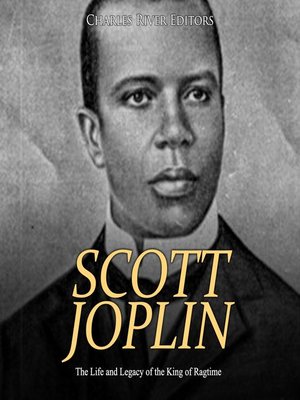Scott Joplin
audiobook (Unabridged) ∣ The Life and Legacy of the King of Ragtime
By Charles River Editors

Sign up to save your library
With an OverDrive account, you can save your favorite libraries for at-a-glance information about availability. Find out more about OverDrive accounts.
Find this title in Libby, the library reading app by OverDrive.



Search for a digital library with this title
Title found at these libraries:
| Loading... |
Despite a general dearth of African American names rising to musical prominence during the years of Reconstruction, black talent existed in good measure for both popular and classical genres, and among the most notable musicians celebrated in the present day is composer Scott Joplin, who in his day earned the moniker "King of Ragtime." Joplin's use of ragtime as a piano genre was as natural to African American dances as the waltz was to Europeans. The new African-based musical language grew to such popularity that piano rags were programmed on formal classical programs. Originally employed as a verb, as in to "rag" a rhythm, the genre was first referred to as the "jig-piano" style. Ragtime features off-beat rhythms, a heavily accented first beat with the left hand making fast leaps to include the harmony. Pieces of the genre are as visually distinctive as they are in sound. Popular with honky-tonk pianists working along the Mississippi and Missouri Rivers, ragtime became the "predominant style of American popular music" by the end of the 19th century. Dance steps like the cakewalk, inspired by minstrel shows featuring modes of black banjo playing, were unlikely to be incorporated into white dance for many years to come, but white musicians incorporated the sound into their own daily repertoires as a pleasing style of melody and rhythm. The days of minstrel performances, in which white performers costumed themselves in black face without societal backlash, were eventually replaced by black performers such as Joplin and others like him. Once free from such mockery, black artists were free to produce musical offerings from the authentic culture. The term "rag," according to Joplin's use of the term, represented a musical evolution, an abrupt, edgy approach to the musical phrase, suggesting a "ragged movement."
Scott Joplin: The Life and Legacy of the King of Ragtime profiles how he became one of 20th century music's most influential figures.






